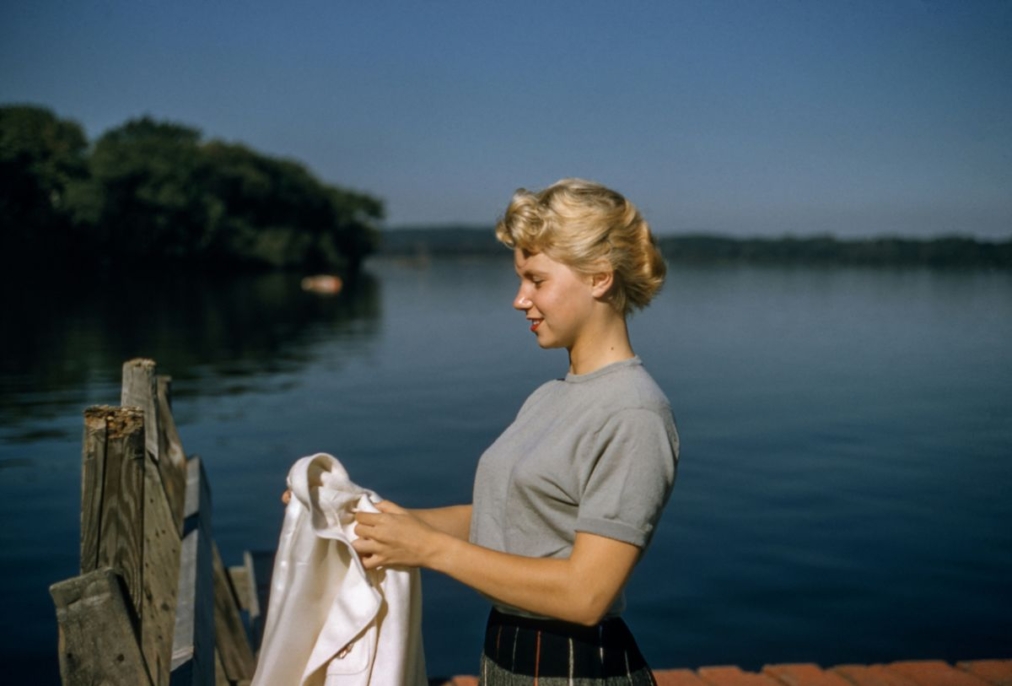Finding the Best Classic Car Insurance for Your Vintage Vehicle
By Budget Savvy Hub | Updated February 13, 2024
When insuring your vintage vehicle, it’s essential to find the best classic car insurance that suits your needs. From considering factors like the age of your vehicle to exploring top insurance companies in the market, this guide will help you navigate the world of classic car insurance.
Table of Contents
Key Takeaways
- Understand the importance of vehicle age in determining insurance premiums.
- Be aware of any usage restrictions that may impact your coverage.
- Consider opting for agreed value coverage for better protection of your vintage vehicle.
- Explore classic car insurance options from reputable companies like Hagerty, Grundy, and American Collectors Insurance.
- Lower your classic car insurance premiums by maintaining a good driving record, joining a classic car club, and installing anti-theft devices.
Factors to Consider When Choosing Classic Car Insurance
Vehicle Age
The age of your classic car is a pivotal factor in determining the type of insurance policy you’ll need. Insurance providers often have specific age criteria for vehicles to be considered classic or vintage. Typically, a car needs to be at least 25 years old to qualify for classic car insurance, but this can vary by insurer.
Vehicle age not only influences eligibility but also the insurance premiums. Older vehicles may require more specialized coverage due to their rarity and the cost of replacement parts. Here’s a quick reference for common age classifications:
- Antique cars: Generally 45 years and older
- Classic cars: Typically 20-45 years old
- Vintage cars: Usually refers to vehicles manufactured between 1919 and 1930
It’s essential to understand that car warranties often exclude accidental damage, such as dents, scratches, and structural damage. Neglect or misuse of the vehicle can void coverage, and regular maintenance is key to keeping the warranty valid.
When discussing your policy with insurers, make sure to clarify how they classify the age of vehicles and what documentation you might need to provide. This will ensure that you receive the appropriate coverage for your prized possession.
Usage Restrictions
When selecting classic car insurance, it’s crucial to understand the usage restrictions that may apply. Insurers often have specific guidelines on how and when your vintage vehicle can be driven. For example, some policies may limit the number of miles you can drive annually, while others might restrict the use of your classic car to only ‘pleasure’ drives or car shows.
- Mileage limits: Some insurers set a maximum number of miles you can drive each year.
- Purpose of use: Restrictions on using the vehicle for daily commuting or commercial activities.
- Event participation: Coverage might only be valid during sanctioned events or parades.
It’s essential to choose a policy that aligns with how you intend to use your classic car to avoid any potential claims issues.
Choosing the right classic car insurance is akin to selecting the right accidental insurance policy. It involves considering coverage, cost, and provider reputation. It’s important to compare providers based on these factors and to understand the policy details in the fine print for optimal coverage.
Agreed Value Coverage
When insuring a classic car, the agreed value coverage is paramount. This is the amount that the insurance company will pay out in the event of a total loss, as opposed to the actual cash value or stated value that may depreciate. It’s essential to have your vehicle accurately appraised to establish this figure.
The agreed value should reflect the true market value of your classic car, taking into account its condition, rarity, and any restorations.
To ensure you’re adequately covered, consider the following:
- An accurate and up-to-date appraisal of your vehicle
- A clear understanding of how your insurance company determines the agreed value
- Regular reviews of your policy to adjust the agreed value as your vehicle appreciates
Remember, the agreed value is a critical factor in the event of a claim and should align with the car’s current market value to avoid underinsurance.
Top Classic Car Insurance Companies
Hagerty
When considering Hagerty for your classic car insurance, it’s important to recognize their position as a leader in the industry. Their policies are tailored to the unique needs of classic car enthusiasts, offering benefits such as flexible usage and in-house claims handling.
Hagerty’s reputation for customer service and financial stability makes them a top choice for many vintage vehicle owners. They understand that balancing insurance coverage is key, which is why they offer a range of policy options to suit different needs and budgets.
Hagerty’s commitment to the classic car community is evident in their support for car clubs and educational resources.
Here’s a quick overview of what Hagerty offers:
- Agreed value coverage without depreciation
- Roadside service with flatbed towing
- Coverage for spare parts and tools
Always review policy limits to ensure they align with your vehicle’s value and your personal requirements.
Grundy
Grundy Insurance has been a trusted provider in the classic car insurance market for many years. Known for their personalized customer service, they offer policies tailored to the unique needs of vintage vehicle owners. One of the standout features of Grundy is their unlimited mileage program, which is a boon for those who like to take their classic cars on the road frequently.
- Unlimited mileage with no restrictions
- In-house claims handling
- Agreed value coverage
Grundy also prides itself on its in-house claims handling, ensuring that claims are processed by experts who understand the value and intricacies of classic cars. Their agreed value coverage means that in the event of a total loss, policyholders receive the full insured amount without depreciation.
It’s important for classic car owners to consider the reputation and reliability of their insurance provider. Grundy’s long-standing presence in the market makes them a solid choice for those seeking peace of mind.
When looking for the best classic car insurance, seniors should take note of Grundy’s offerings. Their experience in the market can provide valuable insights and options that cater to the needs of older drivers, including coverage flexibility and competitive rates.
American Collectors Insurance
American Collectors Insurance offers specialized coverage for classic and vintage cars, ensuring that your prized possession is protected under the right policy. Their tailored plans take into account the unique needs of classic car owners, offering benefits that standard auto insurance policies may not provide.
One of the standout features of American Collectors Insurance is their agreed value coverage, which guarantees that you will receive the full insured amount of the vehicle in the event of a total loss, without depreciation. This is crucial for classic car enthusiasts who have invested significant time and money into their vehicles.
American Collectors Insurance also provides a range of discounts and savings opportunities for their policyholders. These can include reductions for multiple vehicles, secure storage, and limited mileage.
To make the most of your policy with American Collectors Insurance, consider the following:
- Review your policy annually to ensure it reflects any changes or improvements to your vehicle.
- Understand the usage restrictions to avoid any potential claims issues.
- Take advantage of their knowledgeable customer service for any questions or concerns about your coverage.
Tips for Lowering Classic Car Insurance Premiums
Maintain a Good Driving Record
One of the most effective ways to reduce your classic car insurance premiums is to maintain a good driving record. Insurance companies often view drivers with fewer accidents and violations as lower risk, which can lead to lower insurance costs. It’s essential to drive carefully and abide by traffic laws to keep your record clean.
Insurance providers may offer discounts to drivers who have been accident-free for a certain number of years. Here’s a simple breakdown of potential discounts based on your driving history:
- 1-3 years without an accident: 5% discount
- 4-6 years without an accident: 10% discount
- Over 7 years without an accident: 15% discount
Keeping a spotless driving record not only ensures your safety and the safety of others but also significantly impacts your insurance rates. It’s a win-win situation that rewards your conscientious driving habits with financial benefits.
Join a Classic Car Club
Becoming a member of a classic car club can offer more than just camaraderie and shared interest in vintage vehicles. Insurance companies often provide discounts to club members, recognizing the commitment to maintaining and caring for classic cars. These clubs often have partnerships with insurance providers, which can lead to reduced rates for their members.
- Engage with fellow enthusiasts and exchange valuable maintenance tips.
- Access to club-exclusive events and rallies.
- Potential for group insurance deals and discounts.
By joining a classic car club, you not only immerse yourself in the culture but also position yourself for potential insurance premium savings.
Install Anti-Theft Devices
Installing anti-theft devices in your classic car can significantly reduce the risk of theft, which is a concern for many vintage vehicle owners. Insurers often provide discounts for cars equipped with security systems, as they are less likely to be stolen.
By demonstrating that you are proactive in protecting your investment, you can negotiate lower premiums with your insurance provider.
While the initial cost of installing an anti-theft system may seem high, the long-term savings on your insurance premiums can be substantial. Here’s a list of common anti-theft devices that can help safeguard your classic car:
- Steering wheel locks
- Car alarms
- GPS trackers
- Immobilizers
Remember, the more secure your vehicle is, the more favorable your insurance rates are likely to be.
Conclusion
In conclusion, finding the best classic car insurance for your vintage vehicle is essential to protect your valuable investment. By considering factors such as agreed value coverage, specialized classic car policies, and discounts for safe driving records, you can ensure that your classic car is well-protected. Remember to compare quotes from multiple insurance providers and choose a policy that meets your specific needs and budget. With the right insurance coverage, you can enjoy peace of mind knowing that your vintage vehicle is safeguarded against unforeseen circumstances.
Frequently Asked Questions
What qualifies a car as a classic vehicle?
Classic cars are typically defined as vehicles that are at least 20 years old and maintain their original design and features.
Can I use my classic car for everyday driving?
Most classic car insurance policies have restrictions on daily use and may require the vehicle to be used for pleasure driving only.
How is agreed value coverage different from actual cash value coverage?
Agreed value coverage allows you to set a specific value for your classic car, while actual cash value coverage pays out based on the car’s depreciated value.
Do I need to appraise my classic car for insurance purposes?
Many classic car insurance companies require an appraisal to determine the car’s value and ensure proper coverage.
Are there mileage restrictions for classic car insurance policies?
Some policies have mileage restrictions to limit the amount of driving the classic car can do in a year.
Can I modify my classic car and still get insurance coverage?
Modifications to classic cars may affect insurance coverage, so it’s important to disclose any changes to your insurance provider.
You may also like
Navigating Best College Savings Plans: Secure Your Child’s Future
When it comes to securing your child's future through college savings plans, understanding the…
A Seamless Transition: How to Change Banks Without the Hassle
Changing banks can be a daunting task, but with the right approach, it can be a seamless…
Escrow Adjustments: Changing Homeowners Insurance Made Simple
Escrow adjustments play a crucial role in managing homeowners insurance when owning a property.…



